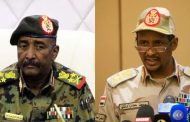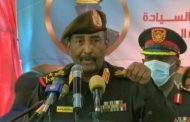Alahramonline
Sudan’s Prime Minister Abdalla Hamdok said Egypt, Sudan, and Ethiopia have agreed on 90 percent of the issues concerning the Grand Ethiopian Renaissance Dam (GERD).
The remaining subjects need further discussions and political decisions, he added.
Hamdok’s remarks came in an interview with the Egyptian privately-owned newspaper Al-Shorouk, more than a month following Hamdok’s phone call with outgoing US President Donald Trump in October.
During the phone call, Trump censured Ethiopia for breaking the GERD deal sponsored by the US and stressed that Egypt has the right to be upset over Ethiopia’s intransigence.
“Our stance is clear on the GERD issue,” Hamdok said. “We support dialogue to resolve disputes and reach an agreement that grants all three countries the right to benefit from rivers and water as a natural right,” he added.
Last month, Sudan decided not to take part in a tripartite ministerial meeting on GERD, which was scheduled to discuss guidelines for further negotiations, saying that the way previous talks were held proved to be “unproductive.”
Sudan’s Irrigation Minister Yasser Abbas stressed on Wednesday that his country’s great benefits from the GERD cannot be achieved without signing a binding legal agreement,
Egypt and Sudan have insisted that the three countries sign a binding legal agreement on disputed issues surrounding the GERD to safeguard the interests of the three sides, a demand repeatedly dodged by Addis Ababa over the last several years.
On Egyptian-Sudanese cooperation, Hamdok said the two countries have cooperated in the fields of health, electricity and infrastructure, affirming that they have come a long way.
He referred to a bilateral agreement to establish a railway line between Alexandria and Khartoum and a deal on electricity projects.
In April, Egypt and Sudan’s electricity grids were officially linked at a voltage of 220 KV, with operations beginning upon Khartoum’s request.
Hamdok said there are big opportunities for cooperation with Egypt in the fields of agriculture and livestock as well.
“We also seek to benefit from Egypt’s experience in extending roads and developing infrastructure, as well as in education, scientific research, and training,” he stated.
The interview covered various other topics including the recently signed Juba peace deal, Sudan’s peace deal with Israel, and the future of democracy in the country.








